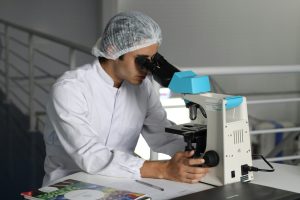Human Trafficking Laws: Why Prosecutions Rarely Lead to Convictions
Human trafficking is a global issue that affects millions of people every year. According to the International Labor Organization, there are currently an estimated 40.3 million victims of human trafficking worldwide, with the majority of victims being forced into labor and sexual exploitation. In the face of such a large and growing problem, many countries have implemented laws and policies to combat human trafficking and prosecute those responsible. However, despite these efforts, convictions for human trafficking remain relatively rare. So why is it that prosecutions for human trafficking often do not result in convictions? In this article, we will explore the various factors that contribute to the low conviction rates for human trafficking cases and shed light on the challenges that hinder successful prosecution of these heinous crimes.
Understanding Human Trafficking and Its Impact
Before we dive into the reasons behind the low conviction rates for human trafficking cases, it is important to have a clear understanding of what human trafficking is and the impact it has on victims. Human trafficking is the process of recruiting, transporting, transferring, harboring, or receiving a person through the use of force, coercion, or deception to exploit them for labor or sexual purposes. It is a form of modern-day slavery that strips victims of their freedom, dignity, and basic human rights.
One of the reasons human trafficking is such a lucrative and widespread crime is because it often goes unnoticed. Victims are hidden in plain sight, with many being forced to work in industries that are easily overlooked, such as agriculture, domestic work, and the sex trade. Therefore, it is crucial that there are effective laws and policies in place to identify, investigate, and successfully prosecute human trafficking cases.
The Challenges of Prosecuting Human Trafficking Cases
Despite the significant efforts made by governments around the world to combat human trafficking, the low conviction rates for these cases suggest that there are still significant challenges that need to be addressed. These challenges can be categorized into three main areas: legal obstacles, lack of resources, and victim cooperation.
Legal Obstacles
One of the biggest challenges in prosecuting human trafficking cases is the complexity and ambiguity of the laws surrounding it. Human trafficking laws vary from country to country, making it difficult to prosecute cases that involve cross-border crimes. In addition, many countries have yet to fully implement and enforce these laws, leaving loopholes for traffickers to exploit.
Another legal obstacle is the burden of proof. In order to secure a conviction for human trafficking, prosecutors must prove beyond a reasonable doubt that the accused knowingly and willfully participated in the trafficking of victims. This can be extremely difficult to prove as traffickers often use coercion, threats, and violence to control their victims.
Lack of Resources
The successful prosecution of human trafficking cases requires significant resources, including experienced investigators, interpreters, and legal aid for victims. However, due to budget constraints and competing priorities, many countries do not have the resources to adequately address this issue. As a result, the investigation and prosecution of human trafficking cases may not receive the necessary attention and resources they require, leading to low conviction rates.
Victim Cooperation
Victims of human trafficking are often hesitant to come forward and cooperate with authorities for various reasons. These can include fear of retaliation, threats against their families, and lack of trust in the justice system. In addition, many victims may not even be aware that they are being trafficked or may have been manipulated into thinking that their traffickers are helping them. Without the cooperation of victims, it can be incredibly challenging to build a strong case against the perpetrators.
Promising Solutions for Better Prosecution
Despite the challenges, there have been some promising solutions implemented in recent years to improve the prosecution of human trafficking cases. These include specialized training for law enforcement and prosecutors, dedicated teams and task forces to handle trafficking cases, and collaboration between government agencies and NGOs to assist victims and hold traffickers accountable.
Another effective approach is the use of victim-centered investigations and prosecutions, which prioritize the safety and well-being of victims and aim to build trust and cooperation with them. This approach recognizes that victims of human trafficking are often vulnerable and require specialized support to testify against their traffickers.
Conclusion
Human trafficking is a complex and deeply ingrained issue that requires a multifaceted and comprehensive response. While laws and policies are an essential aspect of this response, there are still many challenges that must be addressed to ensure successful prosecution of human trafficking cases. By understanding these challenges and implementing effective solutions, we can work towards achieving justice for the millions of victims who suffer at the hands of traffickers.











